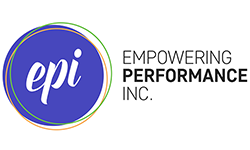Conflict at Work: Tools for Effective Resolution
In "Going Viral Isn't Always Good," we talked about recognizing the symptoms of conflict and identifying common types of workplace conflict. But what can you actually do about it?
Most conflict occurs because of a breakdown in communication, arising from things such as unmet needs, unclear expectations, unrecognized differences, and difficulties coping with life’s changes and challenges. The first step toward preventing and overcoming conflict is to get communication back on track through active listening.
Listening with anger or preconception can lead to aggression and defensiveness, blocking any effective communication. But by listening actively, with alignment instead of antagonism, with respect and an open mind, we can recalibrate communication.
These 8 active listening techniques can immediately address conflict situations:
Go to the balcony. In Getting Past No, author William Ury suggests that, instead of reacting to a situation with knee-jerk anger or excitement, you walk up the steps to your mental “balcony” to view the scene from above and calmly evaluate it.
Bracket. Acknowledge your biases, preconceptions, and judgments . . . then consciously set them aside.
Reflect. Confirm your understanding of the speaker by repeating the speaker's words.
Paraphrase. Use your own words to confirm the speaker’s message.
Check perception. Confirm with the speaker that your assumptions are correct; confirm your understanding of both the data shared as well as how the speaker is feeling about the situation.
Use open-ended questions. Probe for more information by asking questions that require more than a one-word response.
Check body language and tone. Be aware of the whole message, not just the words being used. Body language and tone can dramatically change the meaning of the words.
Steer your perspective towards opportunity. In a situation of tension or differing viewpoints, look for the potential opportunities by asking, "What’s possible here?" "How can this improve the project, process, or relationship?"
Your first priority is truly hearing the other point of view. But you will need to do more to actually resolve conflict. You must commit to demonstrating personal responsibility. Personal responsibility is about seeing a situation for what it actually is, owning your part, identifying possibilities for improvement, and taking action toward that end.
Personal responsibility is also called “above-the-line” thinking and action. This concept was first introduced in 1994 by authors and management consultants Roger Connors and Tom Smith in their book The Oz Principle. (Connors and Smith have kept their research updated and the book remains an invaluable resource for personal and organizational accountability.)
"Above-the-line" thinking means refraining from saying, “It’s not my job,” finger-pointing, or “covering your tail.” When you think and act above-the-line, you:
“See It.” You acknowledge you’re accountable to See It by proactively asking for the perspective and feedback of others. Be open and honest in your communication. Truly hear the “hard things” in order to see the situation as it actually is.
“Own It.” You Own It by being personally invested, acknowledging your involvement, creating and maintaining a sense of alignment. You own both your personal and team’s objectives.
“Solve It”. You make yourself accountable to Solve It by constantly asking yourself what else you can do to achieve the desired results or change the undesired ones, while creatively dealing with obstacles.
“Do It.” You behave in a way that proves your accountability to Do It. You report proactively. You relentlessly follow up. You do what you say you’ll do and measure your own progress.
Above-the-line thinking and actions not only help resolve conflict situations in which you find yourself, but also model to your team how to effectively resolve conflict among themselves.
Conflict is not inherently negative. It’s an inevitable and normal aspect of human interaction once communication breaks down. The good news is that conflict can lead to progress and recommitment when you actively listen to one another and take personal responsibility. Need some guidance moving in that direction? Give us a call.

